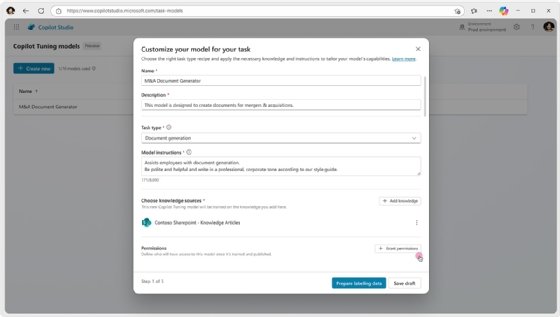Microsoft agent design, Power Apps evolve in sophistication
Microsoft bets big on agents and apps.
If Microsoft's agentic AI strategy was unclear before, it's not anymore.
The company is rolling out new Copilot Studio and Power Apps features that enable users to build agents and their interfaces with plain language prompts backed by generative AI. The features utilize more low-code and no-code pathways to create agents and connect to the data sources that make them run.
Furthermore, Microsoft added support for emerging standards that enable interoperability across software vendors such as Google, Salesforce and ServiceNow.
In the refreshed product lineup, Power Apps becomes "the UI for AI," said Kyle Davis, an analyst at Gartner, while Copilot Studio becomes "the low-code tool for all things agentic AI." He also noted that Microsoft has consolidated some features into Copilot Studio and Power Apps. Copilot Studio now has a workflow feature called agent flows, for example, which resembles a Power Automate feature called cloud flows that would have required a separate license to use in Copilot Studio.
Adding generative AI plain language prompting for developing agents and apps might appear to be a possible threat to the large ecosystem of consultants and Power Apps developers, but Davis said it likely won't be.
While building with these prompts could save time by cutting some development work from creating an app or agent, most front-line workers won't see the value in getting trained to be a citizen developer. And if they do, no-code tools can only get a person so far, especially when the automation of complex processes is involved.
For instance, even if no-code technology can get a business user's project 80% complete, an agent and its app will probably need a developer fix to the other 20% that it got wrong with more sophisticated tools, Davis said.
"When you need to go fine-tune [an agent], it's not going to be using actual [plain] language quite yet," Davis said. "You're still going to have to get in there and understand how everything works together, and make those tweaks using a declarative approach."

Interoperability between agents a priority
The agentic AI previews and releases at Microsoft Build this week represent Microsoft taking steps to show it not only creates tools that build agents in its own environment, but it also supports open standards, said Jason Wong, an analyst at Gartner.
"They're looking to drive interoperability across their tools, and interoperability with third-party agents via Model Context Protocol," Wong said.
He added that the fledgling Google Agent2Agent Protocol (A2A) also might be part of future agent interoperability, but it's too early to tell. Microsoft announced plans to add support for A2A earlier this month. ServiceNow and Salesforce already support MCP.
Users who don't want to get into the business of building AI agents and worrying about interoperability standards now have yet another option: The Microsoft Agent Store, where partners and users can upload and recommend prebuilt agents to accomplish common processes.
For its part, Microsoft sees the office world evolving to an environment where digital co-workers work alongside their human counterparts, said Ryan Cunningham, corporate vice president of Microsoft Power Platform Intelligent Applications.
Agents gradually will grow more autonomous as software companies release platforms to build and train more effective agents, he said.
"When it comes to Copilot Studio and Power Platform, we're really focused on business processes, how companies run their operations and how to make that more efficient," Cunningham said. "That's been a mission we've been on in Power Platform for years, you know, but I think this moment dramatically expands what's possible there."
Don Fluckinger is a senior news writer for Informa TechTarget. He covers customer experience, digital experience management and end-user computing. Got a tip? Email him.







